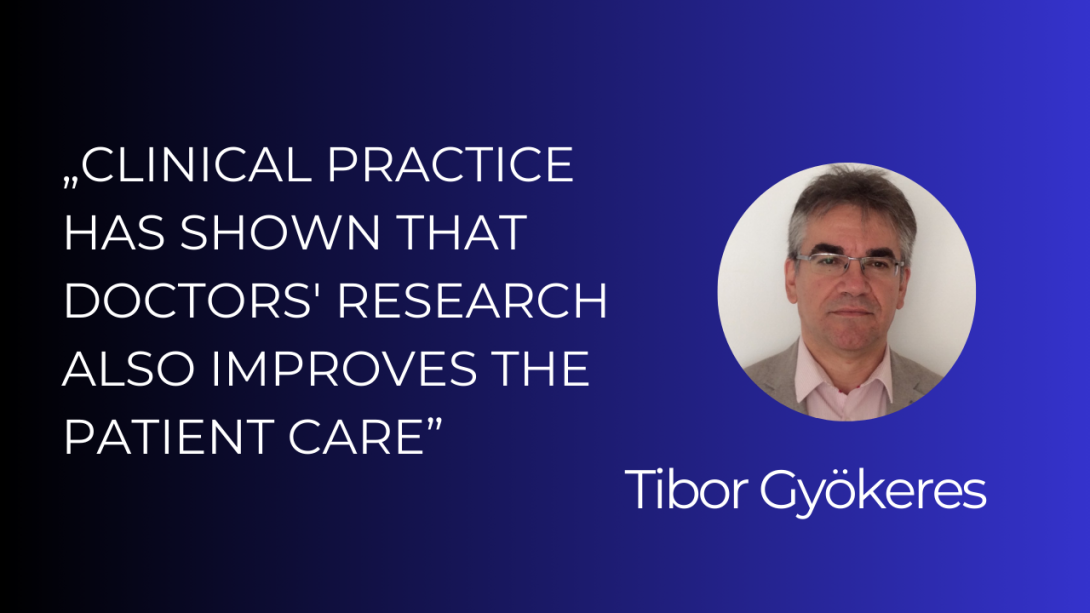
Most of the first-year students of the Gastroenterology Group are dealing with research topics related to pancreatitis and pancreatic cancer, while some are trying to clarify clinical questions related to inflammatory bowel diseases and eating disorders. In September, the Gastroenterology Group (Year 1) was named the Best Group of the Month. We spoke to one of its leaders, Dr. Tibor Gyökeres, who joined the CTM team this year as Head of Gastroenterology Department at Central Hospital of Northern Pest – Military Hospital.
The first-year students of the Gastroenterology Group mostly deal with surgical and oncological research topics. Many of them are researching pancreatic cancer, which is currently incurable – partly due to the late diagnosis of the disease. “This highlights the importance of finding a way to recognize pancreatic cancer at an early stage. Therefore, one of our students is trying to find opportunities for early diagnosis. Another student is investigating whether endoscopic sampling of pancreatic diseases is more efficient if the sample is immediately examined macroscopically by an endoscopist himself. This might be useful because the sample does not always contain valuable tissue, so the sampling often needs to be repeated, which, in this case, can be done immediately.”
Another pancreatic cancer related topic is what PET-MRI can add to the diagnosis of this disease. This question is also being explored by a first-year Ph.D. student. There is also a first-year student who is researching the risk factors for pancreatic cancer diagnosed before the age of fifty. Students are also researching the best treatment strategy for pancreatic cancer that is still operable. “In these cases, the question is whether it is better to operate earlier and then give adjuvant chemotherapy, or it is better to give chemotherapy first and then operate. We also have a student who is trying to clarify whether it is worth removing the primary tumor when there is few metastasis in pancreatic cancer.” A dietitian has also joined the Gastroenterology Group to clarify clinical questions on inflammatory bowel disease in her meta-analysis. For example, whether exclusive enteral nutrition improves the outcome of a surgical intervention later on or it may even help avoiding it. There are also psychologists in the Gastroenterology Group dealing with eating disorders and researching the links between IBS and functional dyspepsia.
„We have meetings with the first-year Ph.D. students on Tuesdays, and we found that they are progressing very well. This is not surprising to me because I am familiar with the previous results, although I joined CTM only this academic year. For example, the research highlighted that patients do not need antibiotics routinely in acute pancreatitis.” Dr. Gyökeres also has a colleague at his unit who became involved in CTM training earlier, as a Ph.D. student. Dr. Dániel Pálinkás is working on a meta-analysis, assessing the risks and benefits of direct oral anticoagulant resumption after a gastrointestinal bleeding episode. His results can help prevent re-bleeding and embolic events. “I have seen how much Dr. Pálinkás has developed during his training and how his research has benefited his patient care. Therefore, this year, I have already encouraged my colleagues to join the CTM Ph.D. program. Dr. Kálmán Zsigmond applied for the training at my encouragement, and so did our dietitian, Dóra Demeter. I am pleased that these two specialists from my department have enrolled for the Ph.D. training.”
(Emese Szabó)